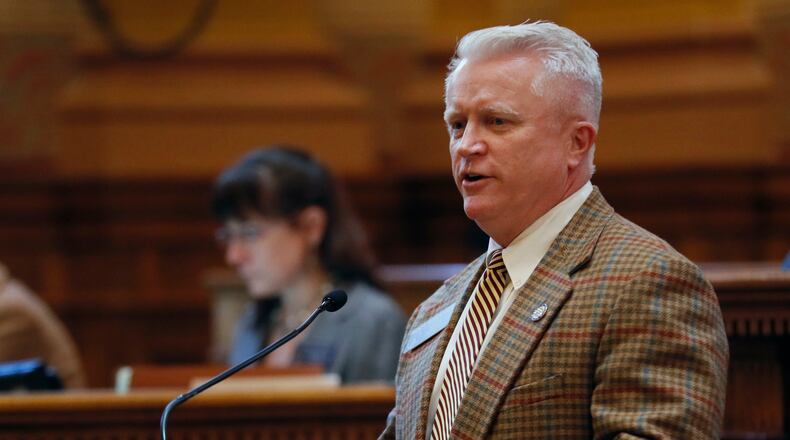The Senate passed what is being called a temporary fix to Georgia's DUI law after the state Supreme Court last month ruled it was unconstitutional.
The Senate voted 46-4 to approve changes to the state “implied consent” DUI law that would allow law enforcement to use a person’s refusal to submit to a blood or urine test against them as evidence at a trial.
The state Supreme Court ruled that a driver’s refusal to take a breathalyzer test cannot be held against them in criminal court.
The Georgia House on Tuesday passed similar legislation, House Bill 471, which would also apply to people accused of hunting or operating a boat under the influence of alcohol or drugs.
Hours after the Feb. 18 decision, prosecutors told police they should prepare to seek more warrants for blood and urine tests in order to combat drunk driving — a process law enforcement officers said would be cumbersome.
State Sen. Randy Robertson, a first-year lawmaker and former law enforcement officer, said he introduced the legislation to ease the burden on police.
The Cataula Republican said Senate Bill 208 is a temporary fix that aims to balance a person's rights with the goal of having safe roads and highways.
In a unanimous ruling, the justices determined that using a driver’s refusal to submit to a breath test against them at trial violates the Georgia Constitution’s protections against self-incrimination. They also affirmed a previous ruling that said it is unconstitutional to force drivers to take the breath tests.
State Sen. Bill Cowsert, R-Athens, questioned whether Robertson's bill would improve the state's DUI law.
“I would hate for us to replace an unconstitutional law with another unconstitutional law,” he said before voting against the bill.
Robertson said the General Assembly may need to eventually amend the state’s Constitutional definition of “self incrimination.”
About the Author
Keep Reading
The Latest
Featured




